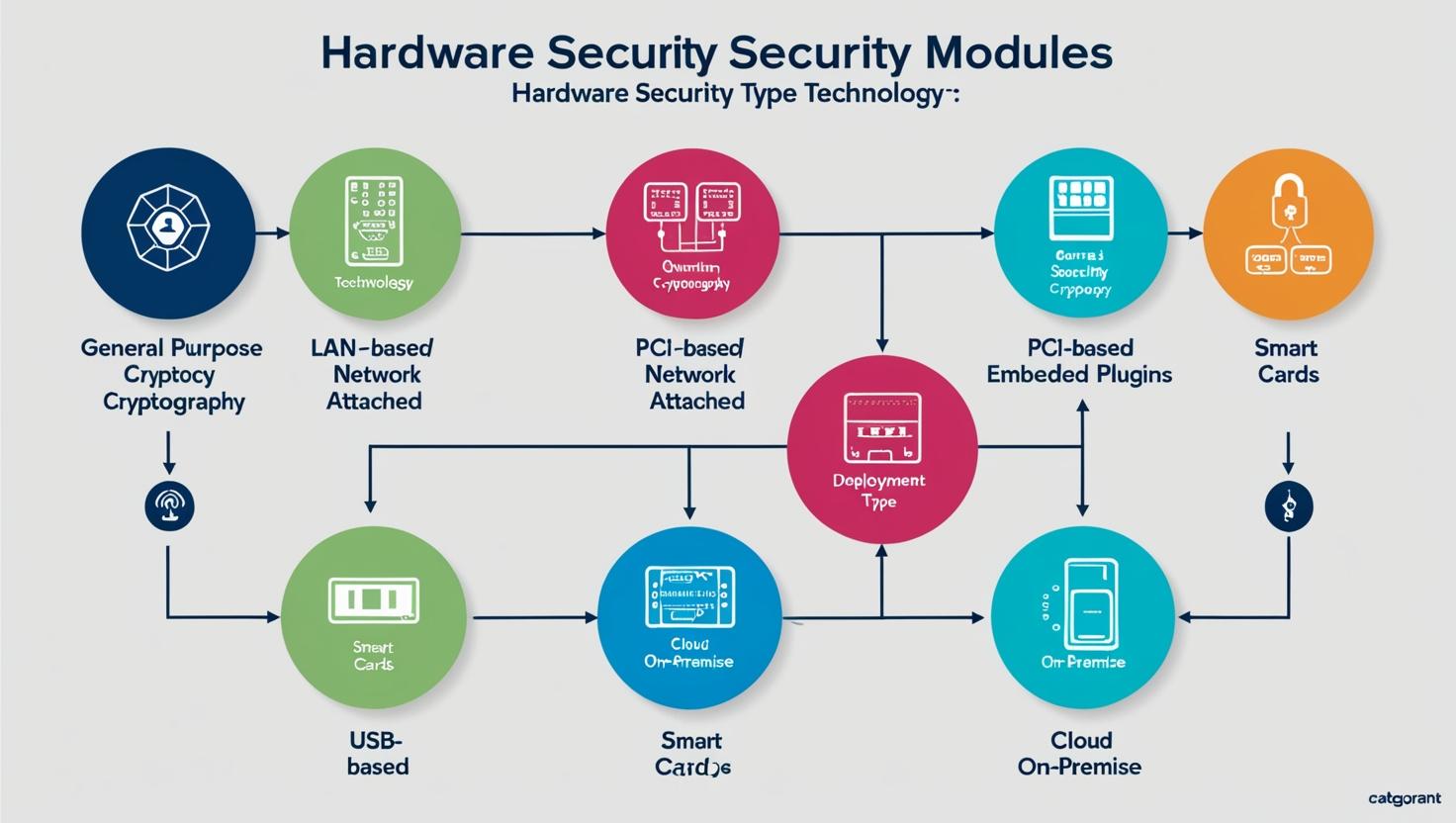As the world edges closer to a quantum computing era, the demand for quantum-resilient security solutions is accelerating. At the forefront of this transformation is the quantum cryptography market, a sector gaining rapid momentum across both hardware and cloud-based infrastructure. This convergence of cutting-edge encryption technology with scalable digital ecosystems is not only reshaping the cybersecurity landscape but also presenting significant, long-term investment potential.
As cybersecurity threats evolve and quantum computing emerges on the horizon, the Hardware Security Modules (HSM) industry is undergoing a critical transformation. The convergence of traditional hardware-based encryption systems with quantum cryptography is creating a powerful new layer of defense—one that is designed to withstand even the most advanced attacks of the future.
The integration of quantum-safe cryptographic techniques into HSMs is not just a technological upgrade; it is a strategic move to protect the foundations of digital trust across sectors such as banking, telecommunications, defense, and cloud services.
The Role of HSMs in Modern Cryptography
Hardware Security Modules (HSMs) are physical computing devices that manage digital keys, encrypt and decrypt data, and perform secure cryptographic operations. They are widely used in applications where data security and integrity are mission-critical, including payment processing, digital certificates, identity management, and blockchain.
HSMs are valued for their tamper-resistant architecture and high assurance levels. They serve as the backbone of Public Key Infrastructure (PKI) and enable secure key storage for traditional encryption algorithms such as RSA, ECC, and AES.
Quantum Computing: A Looming Threat to Classical Encryption
The rise of quantum computing presents an existential threat to current encryption systems. Quantum algorithms—like Shor’s algorithm—could theoretically break RSA and ECC, which are the foundation of digital communication security. As such, there is a pressing need to evolve security infrastructure to be quantum-resistant.
This is where quantum cryptography, particularly Quantum Key Distribution (QKD) and post-quantum cryptographic (PQC) algorithms, come into play. These technologies promise to secure communication channels against future quantum-based attacks.
Download PDF Brochure @ https://www.marketsandmarkets.com/pdfdownloadNew.asp?id=162277475

Integrating Quantum Cryptography into HSMs
Forward-looking HSM vendors are now incorporating quantum-safe algorithms and QKD support into their systems to help enterprises transition to a post-quantum world. These next-generation HSMs can generate, store, and manage quantum-resistant keys, making them a vital bridge between today’s infrastructure and tomorrow’s quantum reality.
The key innovation lies in combining the physical security of HSMs with the unbreakable security model of quantum cryptography. Some vendors are also exploring hybrid HSMs that support both classical and post-quantum cryptographic functions—offering customers flexibility and a future-proof migration path.
Market Drivers for HSMs with Quantum Capabilities
Several factors are driving demand for HSMs enhanced with quantum cryptography:
-
Quantum-readiness mandates: Governments and regulatory bodies are pushing enterprises to adopt post-quantum standards in preparation for quantum threats.
-
Cloud and edge expansion: With workloads increasingly moving to the cloud, quantum-secure HSMs help extend protection to distributed and hybrid environments.
-
Zero-trust security models: HSMs that support quantum cryptography strengthen identity and access controls in zero-trust architectures.
-
Growing enterprise awareness: Businesses in sectors like banking, defense, and telecom are actively exploring quantum-resistant technologies to protect high-value data over long time horizons.
Outlook: A Long-Term Growth Engine for Cybersecurity Investors
The true opportunity for investors lies in the convergence of cloud scalability and hardware robustness. Companies that can offer end-to-end quantum-safe solutions—integrating on-premise devices with cloud-based key distribution—will dominate the next wave of cybersecurity innovation.
As digital infrastructure becomes more complex and threats grow more sophisticated, the quantum cryptography market is emerging not only as a technological necessity but also as a compelling frontier for investment. With both hardware and cloud deployment models unlocking scalable, secure, and future-proof solutions, the market presents an unparalleled opportunity to get ahead of the quantum security curve.
For forward-looking investors, early participation in this rapidly maturing market could yield not just returns—but resilience in an increasingly quantum-powered world.
Semiconductor and Electronics Market Research Reports
Hardware Security Modules with Quantum Cryptography – FAQ
1. What is a Hardware Security Module (HSM)?
An HSM is a physical computing device used to safeguard and manage digital cryptographic keys. It performs secure encryption, decryption, authentication, and key management, and is commonly used in industries like finance, telecom, defense, and cloud services.
2. Why are HSMs important in cybersecurity?
HSMs offer tamper-resistant environments for executing cryptographic operations. They provide high-assurance protection against data breaches, insider threats, and malware, and are essential for securing digital identities, transactions, and confidential information.
3. What is quantum cryptography, and why is it relevant to HSMs?
Quantum cryptography uses principles of quantum mechanics—particularly Quantum Key Distribution (QKD)—to secure data transmission. As quantum computers grow more powerful, traditional encryption methods are becoming vulnerable. By integrating quantum-safe algorithms, HSMs become future-proof against quantum-based attacks.
